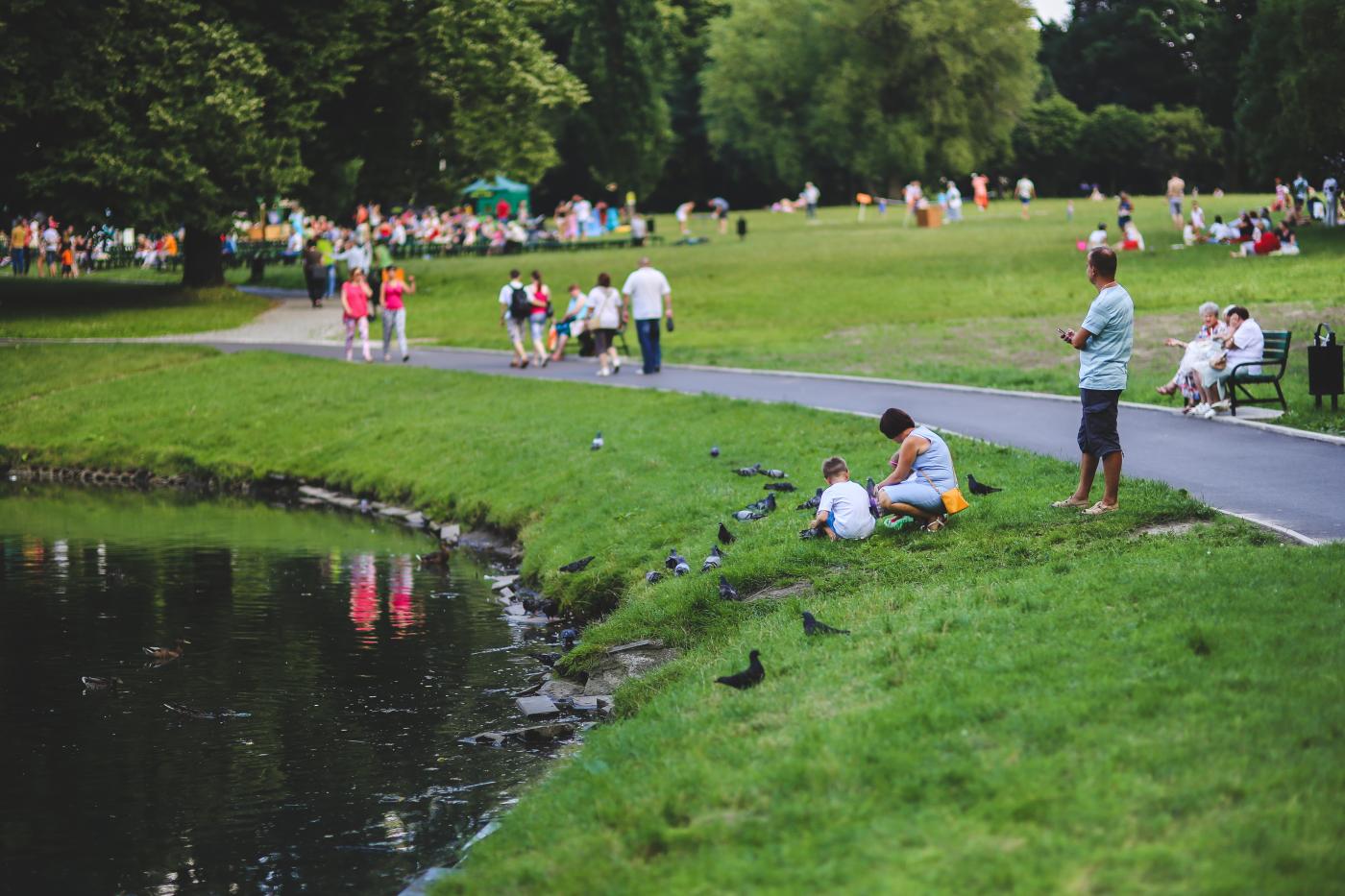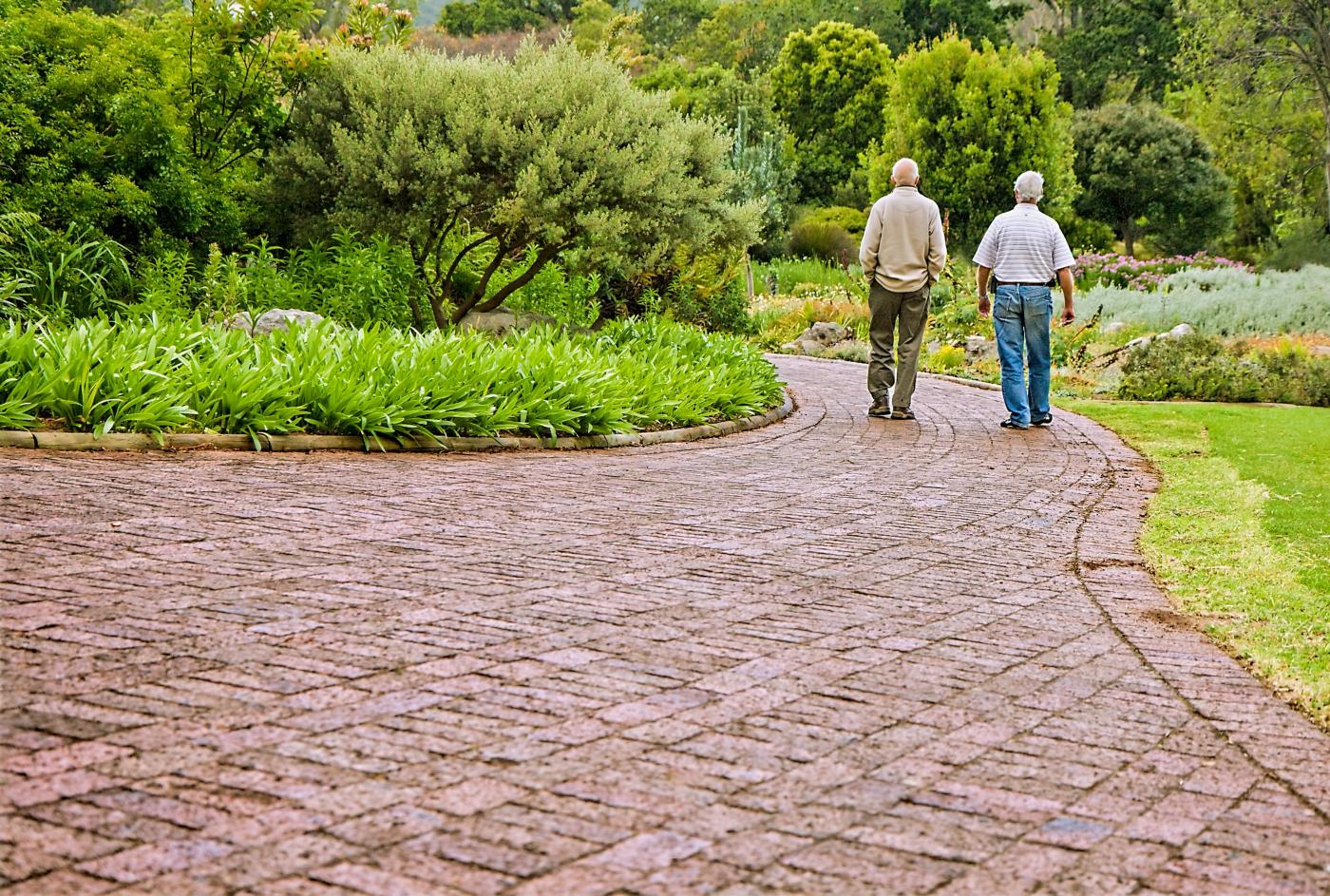What is the Center for Design and Health?
We aim to understand how the design of our built environments can address the challenges of rapid urbanization so that our cities and the places in which we work and live are healthier and more nourishing to everyone.
Churchill famously said, 'we shape our buildings and afterwards our buildings shape us.' (1948). The Center for Design and Health (CDH) produces research that captures how the world shapes our health and wellbeing, how we experience place, what is going on in our minds and bodies as we move through space, and aims to apply this knowledge to the design and planning of the built environment.
Our goal is to foster and apply research to design solutions that allow us be fitter, happier, more productive, age better, live longer, and help us all live together in a positive and meaningful way.
Specifically, we aim to:
- Drive world-class scientific research on the neurological and psychological impact of environments on the human mind
- Translate basic research into design practices
- Promote excellence in teaching to educate a new generation of design-health professionals and leaders to promote a vision for healthy, inclusive places
- Generate impact and serve as the definitive ‘go-to’ design-health resource for Virginia and beyond
- Drive discourse within the disciplines of architecture, planning, and landscape architecture as agents of health change
Director

Jenny Roe
Mary Irene DeShong Professor of Design and Health
Jenny Roe is the inaugural Mary Irene DeShong Professor of Design and Health and the Director of the Center of Design and Health with a multi-disciplinary background in the humanities, design and environmental psychology. She is the former Senior Research Leader in Human Wellbeing and Behaviour Change for the Stockholm Environment Institute (SEI) where she worked with environmental scientists and health professionals to explore how best to build sustainable, resilient and healthy cities.
Jenny is a Landscape Architect and Environmental Psychologist who explores the interactions between people and their environment. She is a specialist researcher in restorative environments and places that actively improve our health, such as high quality urban parks, water settings, and well designed buildings with good daylight. She has built a reputation for pioneering innovative methods in disadvantaged communities in order to quantify the health benefits of good neighborhood design and green space, using physiological indicators such as cortisol – the stress hormone – and mobile Electroencephalography (EEG) to explore emotional activity on the move.
Prior to her current career in academia, she was Principal Landscape Architect in a multi-disciplinary architectural practice in London called Sprunt specializing in social housing, educational and healthcare design. Access to all her publications, blog postings and films can be found at jennyjroe.com.
Our Research and Projects

The Center for Design + Health's research in environmental psychology (EP) is driven by our expertise and competitive advantage in the areas of Mental Health, Health Equity, and Natural Systems.
We are driving innovation in these fields by firstly, using cutting edge technologies — such as mobile neural imaging and daylight sensors; secondly, by applying novel research methods to the EP field — such as the use of cortisol as a biomarker of stress; and thirdly, by applying a thoroughly inter-disciplinary and integrative approach to addressing health problems. By further catalyzing on UVA’s institutional strengths and wider faculty, the Center for Design + Health is poised to build further research excellence in these niche areas.
— Mental Health
— Health Equity
— Natural Systems
A few of our current projects are highlighted below
CO-CREATING AN EQUITABLE NATIONWIDE COMMUNITY FORESTRY PUBLIC AWARENESS AND EDUCATION MESSAGING CAMPAIGN (2022-2024)

Led by the UVA's Institute for Negotiation (IEN) and funded by USDA Forest Service Urban & Community Forestry Program, award value $1 million. This project will support the co-creation of a scalable public education and messaging strategy by elevating priorities of communities disproportionately affected by climate change and environmental injustice. These messaging strategies will meet local, state, and national messaging needs with customized, culturally responsive support. By providing microgrants to these communities they will co-create audience-specific communications strategies, that will grow public awareness and education to promote stewardship of community forests where it is needed most. Innovative communication strategies will reach out beyond the “urban forestry choir” to under-engaged community members and the public. The nationwide messaging campaign will be able to be customized for regional and local audiences and successfully tested with its focused audiences. The messaging campaign will also address USDA national priorities of environmental and climate justice.
Partners:
UVA Institute for Negotiation (IEN)
CDH Project Lead:
Jenny Roe is the Director of the CDH
FOCUSED COPE: ENHANCING RESILIENCE AND EQUITY IN URBAN COASTAL COMMUNITIES THROUGH THE CO-GENERATION OF COMMUNITY CAPITALS (2022-2027)

This five-year research initiative will explore how to best design infrastructure to combat the impacts of climate change, sea level rise and storm water management in coastal communities in Norfolk currently at risk from flooding. A key strategy is co-creating the design of new resilient infrastructure with citizens and key stakeholders in Norfolk. The research will include a carefully controlled natural experiment -- led by Jenny Roe -- that will quantify the mental health benefits of a green space intervention designed to combat the impacts of climate change in Norfolk and foster community wellbeing.
Funded by the National Science Foundation Coastlines and People Hub for Research and Broadening Participation, award value $5 million.
CDH Project Lead:
Jenny Roe is the Director of the CDH
IMPACT OF URBAN WALKS ON HEALTH AND WELLBEING ACROSS THE LIFE SPAN (2020-2022)

This project brought together partners from the University of Virginia, Virginia Tech, and the Science Museum of Virginia to explore how environmental stressors (such as air and noise pollution and heat stress) and mitigating strategies -- such as increasing tree canopy and green space -- affect the health benefits of walking in urban settings across lifespan. It replicates our earlier ESME study showing a positive effect of urban green space on cognitive and emotional wellbeing in older peopled aged 65 plus.
This extension study engaged participants in three age groups (young, middle-aged, and older adults) who undertook short walks in both green and busy urban areas during Covid-19 (Summer 2020). Our study found that walking in urban green space improved stress regulation (as captured by heart rate variability and self-reported perceptions of stress) and improved emotional wellbeing, and thermal comfort whilst also accounting for the impact of air quality and temperature on these outcomes.
This grant was awarded to the University of Virginia and partners, and funded by the Integrated Translational Health Research Institute of Virginia) (iTHRIV) 2020 to 2022.
CDH Project Lead:
Jenny Roe is the Director of the CDH
THE EMOTIONAL, PHYSICAL, AND COGNITIVE BENEFITS OF PURPOSEFUL GREEN SPACE ACTIVITIES ON SENIORS (2021-2022)

COVID-19 has had a severely detrimental impact on seniors across the globe. Older adults have suffered due to movement restrictions that have been detrimental to emotional, physical and cognitive health outcomes. During Covid-19, this project explored if different types of nature-based interventions could lead to improvements in emotional, physical and cognitive health outcomes amongst seniors. The three nature activities tested were: walking in nature (contemplative activity), engaging in physical planting (physical activity) and a citizen science-based activity (cerebral activity). Wellbeing outcomes include measures of physical activity, loneliness, belonging, working memory, psychological restoration and mood in seniors, aged 65+. Our study identified that all three interventions were beneficial to wellbeing in seniors and results will be published in 2023-2024.
Funded by iTHRIV (Translational Health Research Institute of Virginia) and the National Center for Advancing Translational Sciences (NCATS) of the National Institute of Health (NIH). Total Award Value: $40,000.
Partners:
iTHRIV, NCATS
CDH Project Lead:
Jenny Roe is the Director of the CDH
To find out more about the project contact Jenny Roe: jjr4b@virginia.edu
